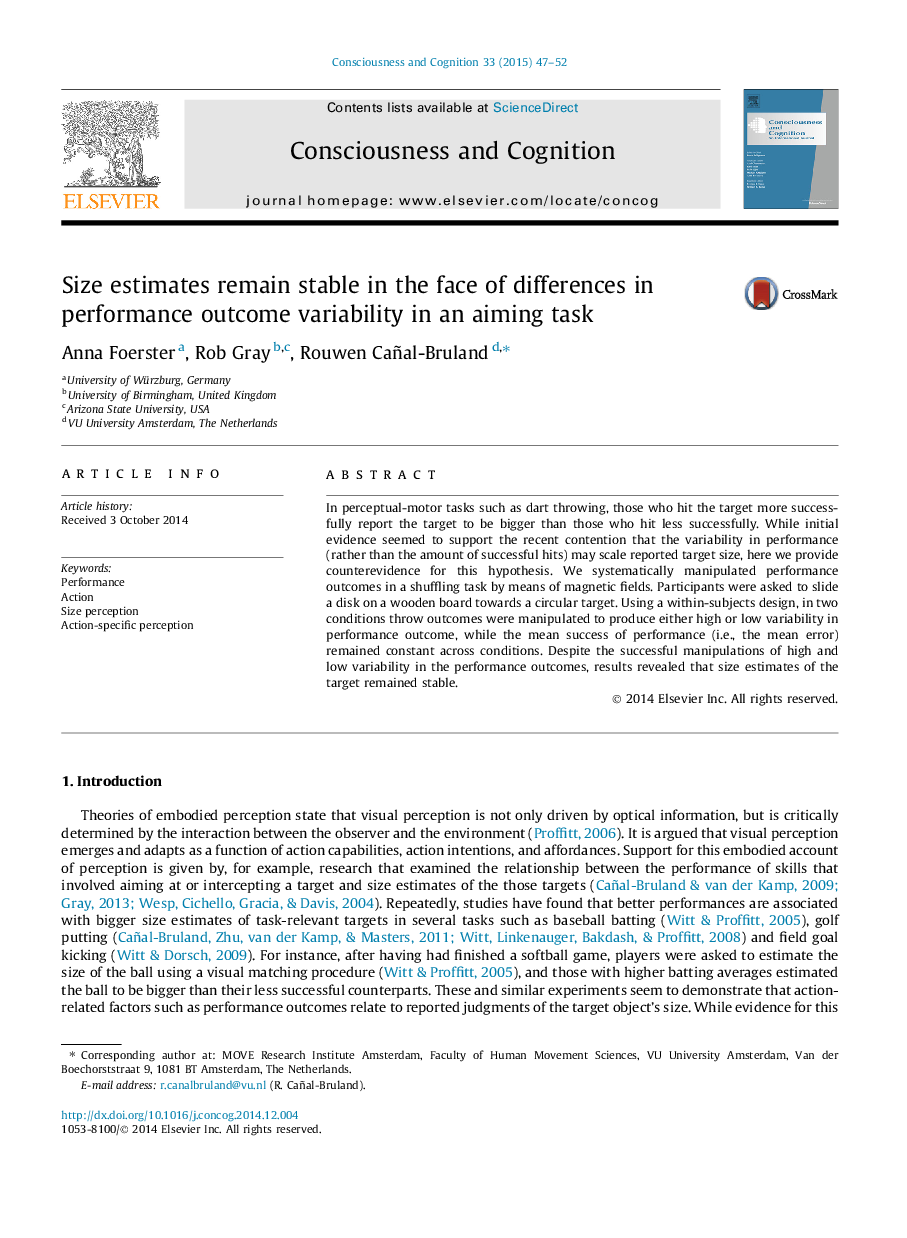| Article ID | Journal | Published Year | Pages | File Type |
|---|---|---|---|---|
| 7289435 | Consciousness and Cognition | 2015 | 6 Pages |
Abstract
In perceptual-motor tasks such as dart throwing, those who hit the target more successfully report the target to be bigger than those who hit less successfully. While initial evidence seemed to support the recent contention that the variability in performance (rather than the amount of successful hits) may scale reported target size, here we provide counterevidence for this hypothesis. We systematically manipulated performance outcomes in a shuffling task by means of magnetic fields. Participants were asked to slide a disk on a wooden board towards a circular target. Using a within-subjects design, in two conditions throw outcomes were manipulated to produce either high or low variability in performance outcome, while the mean success of performance (i.e., the mean error) remained constant across conditions. Despite the successful manipulations of high and low variability in the performance outcomes, results revealed that size estimates of the target remained stable.
Related Topics
Life Sciences
Neuroscience
Cognitive Neuroscience
Authors
Anna Foerster, Rob Gray, Rouwen Cañal-Bruland,
